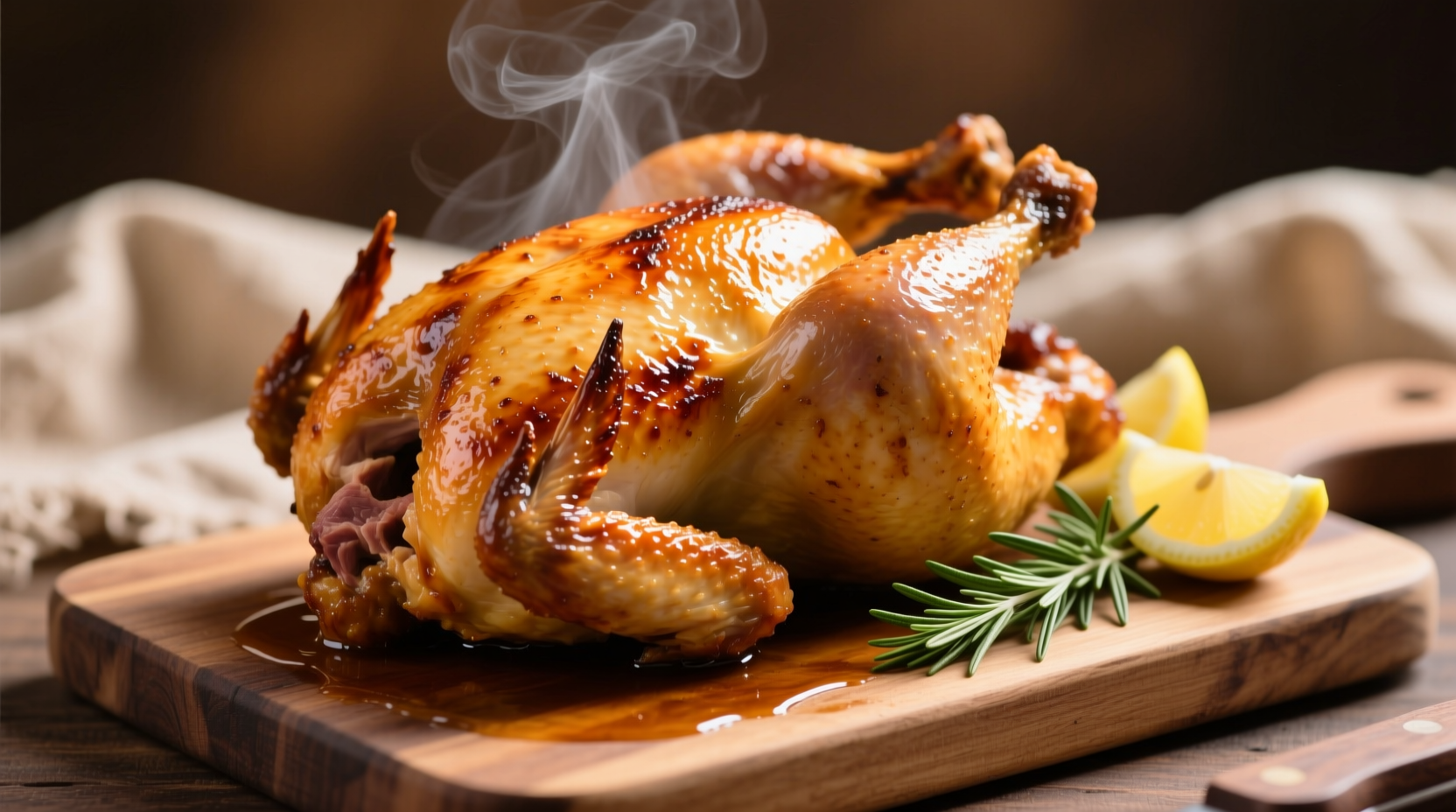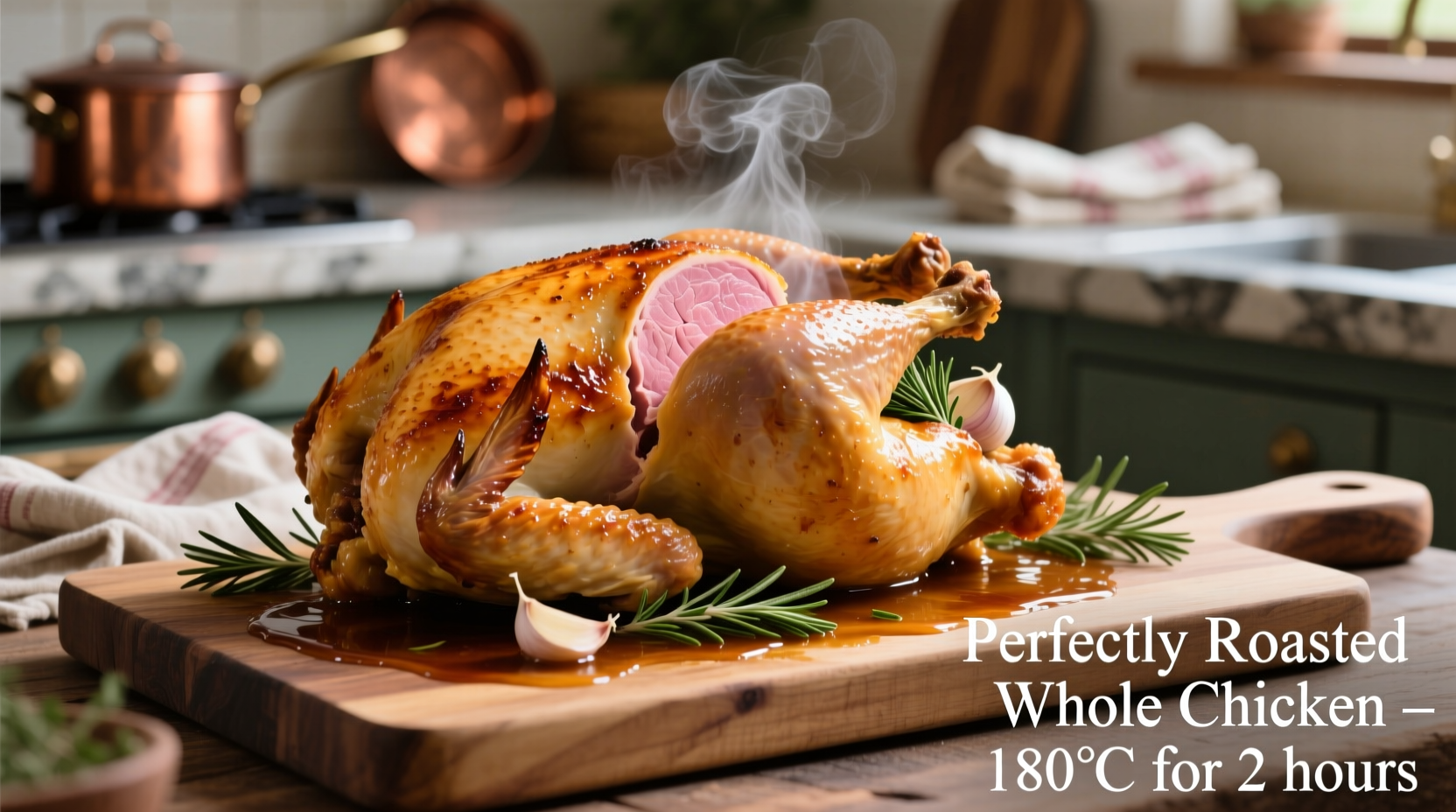Nothing says "home cooking" quite like a beautifully roasted whole chicken. But many home cooks struggle with dry meat, uneven cooking, or uncertainty about when it's truly done. The secret isn't complicated equipment or rare ingredients—it's understanding the science of heat transfer and moisture retention in poultry. After testing dozens of methods across various oven types, we've refined a foolproof approach that works whether you're cooking for weeknight dinner or holiday gathering.
Why This Whole Chicken Method Works
Unlike complicated brining processes or specialized equipment, this technique focuses on three critical factors that determine chicken success: surface dryness for perfect browning, proper seasoning penetration, and precise temperature control. Most home cooking failures happen because people skip the drying step or don't use a reliable thermometer—two mistakes this method eliminates.
Before You Start: Essential Preparation
Your chicken's journey to perfection begins hours before it hits the oven. Proper preparation makes the difference between soggy skin and golden crispiness:
- Dry thoroughly—Use paper towels to pat every surface completely dry, including under the wings and legs
- Season early—Apply salt at least 12 hours before cooking (or up to 24 hours) for deep flavor penetration
- Bring to room temperature—Remove chicken from refrigerator 1 hour before cooking for even heat distribution
- Truss properly—Tie legs together with kitchen twine to maintain shape and promote even cooking
| Chicken Weight | Initial High Heat | Finish Time | Total Cooking Time |
|---|---|---|---|
| 3-4 lbs | 15 minutes | 45-55 minutes | 60-70 minutes |
| 4-5 lbs | 15 minutes | 55-65 minutes | 70-80 minutes |
| 5-6 lbs | 15 minutes | 65-75 minutes | 80-90 minutes |
This cooking time reference comes from USDA Food Safety and Inspection Service guidelines, which recommend cooking poultry to a minimum internal temperature of 165°F (73.9°C) for safety. The two-phase temperature approach—starting high then reducing—creates perfect conditions for crispy skin while preventing overcooking.
The Roasting Process: Step by Step
Follow these precise steps for restaurant-quality results:
- Preheat oven to 425°F with rack in the lower third position
- Place chicken breast-side up on a rack in a roasting pan
- Roast at 425°F for 15 minutes to initiate browning
- Reduce heat to 375°F without opening the oven door
- Continue roasting until thermometer reads 165°F in thigh
- Rotate pan halfway through for even cooking
- Baste with pan juices every 30 minutes for extra flavor

Temperature Verification: The Non-Negotiable Step
Visual cues alone can't confirm doneness—only a reliable thermometer can. Insert an instant-read thermometer into the thickest part of the thigh, avoiding bone contact. The USDA Food Safety and Inspection Service (fsis.usda.gov) confirms 165°F is the minimum safe temperature for poultry. For juicier results, many professional chefs pull chicken at 160°F, allowing carryover cooking to reach 165°F during resting.
Resting: The Secret to Juicy Meat
Never skip this critical phase. Resting allows juices to redistribute throughout the meat. Tent loosely with foil and wait:
- 3-4 lb chicken: 12-15 minutes
- 4-5 lb chicken: 15-20 minutes
- 5-6 lb chicken: 20-25 minutes
Carving Like a Pro
Use a sharp carving knife and follow this sequence:
- Remove legs by cutting through hip joints
- Separate thighs from drumsticks
- Cut breast meat away from ribcage
- Slice breast against the grain into even portions
- Remove wings at shoulder joint
Troubleshooting Common Problems
Brown too quickly? Tent loosely with foil. Skin not crispy? Ensure thorough drying and avoid overcrowding the pan. Dry breast meat? Next time, try butterflying the chicken or placing bacon over breasts during initial cooking phase.
This method works best for standard convection and conventional ovens. For convection ovens, reduce temperature by 25°F and check 10-15 minutes early. The technique isn't recommended for air fryers (use smaller portions) or slow cookers (requires different safety considerations).











 浙公网安备
33010002000092号
浙公网安备
33010002000092号 浙B2-20120091-4
浙B2-20120091-4